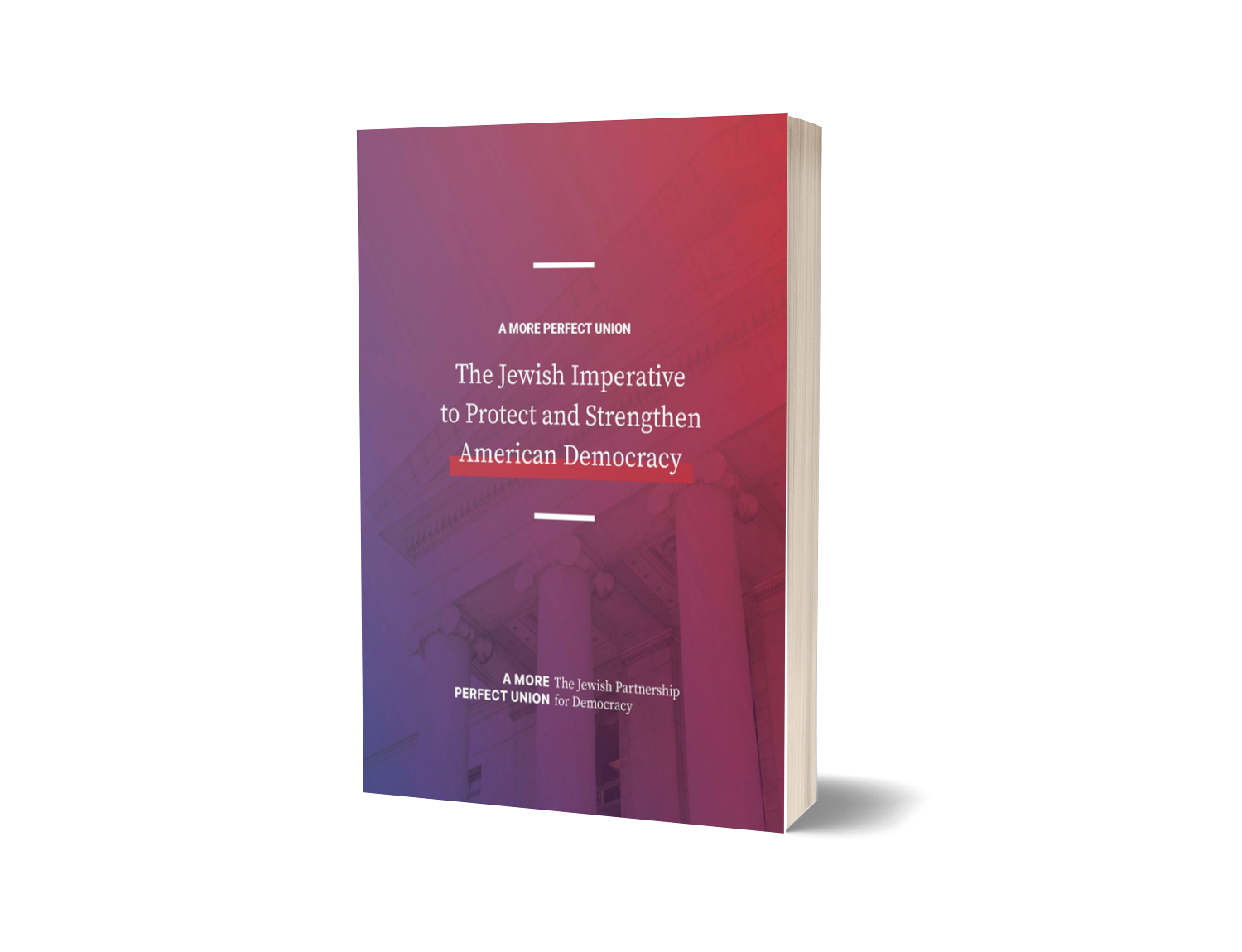
Partner Spotlight:
Habonim Dror Camp Galil
A Jewish Camp Cultivates Democracy Through Healthy Conversations
Habonim Dror Camp Galil prides itself as a second home for youth who not only enjoy an enriching Jewish camp experience, but also as a springboard into growth through transformative experiences. Part of what makes Camp Galil so unique is its focus on civic participation amongst campers and staff, alike.
This summer, Camp Galil will take the next step in enhancing its civics education curriculum and dive deeper into what it means to have - and keep - a pluralistic democratic society here in the United States. Part of the revamped program include bringing in facilitators to train staff in the art of navigating healthy disagreement and constructive dialogue through depolarization and bridge-building techniques.
David Weiss, executive director of Camp Galil, credited their wider leadership team for zeroing in on the need to focus more efforts this coming year on civic learning and ideological pluralism.
“We recognized it is an election season. Freedom of speech is a big deal and there are going to be some big discussions happening this summer,” said Weiss. “We have always had a culture of debate here, having people speak their minds. Largely, people come to be similarly minded, but we are seeing that there are going to be differences of opinion on things. How do we have those conversations in a civil way?”
Strategic Priorities: Civic Learning, Practice of Democracy, Ideological Pluralism
Network Commitment: Camp Galil commits to incorporating and enhancing civics education in our tochnit (curriculum) this summer. Additionally, we want to train our tzevet (staff) in depolarization techniques and bridge-building and have our campers understand that it is okay — and healthy — to have differences of opinions in a constructive and positive dialogue.
Partner since: 2023
Beyond learning how to navigate difficult conversations, campers will also have the opportunity to build their confidence and enthusiasm for the process by speaking up about issues that matter to them, whether big or small. Through mock congresses and “Hyde Park” debates (also known as Speakers Circles), campers are encouraged to give voice to any issue that inspires them. Their interests cover a wide range of topics from climate change to more sprinkles on camp desserts. Weiss feels these experiences are important building blocks to empowering the next generation of engaged citizens.
“When we talk about building a better world, we have to include all the resources. A lot of that is advocating for public policy and voting. We need to inspire them to be part of that electoral process. We need them to ask themselves: what does it mean to have a compromise? It’s an important part of the process.”
An event this fall with Foundation for Jewish Camp introduced Galil’s leadership to the Jewish Partnership for Democracy and motivated them to dig deeper into their existing civics programming, with a pivot towards a greater focus on these efforts in the year ahead.
“We focus on tzedek (justice) and tikkun olam (repairing the world). Democracy and civic engagement are really important pieces of that. We want to inspire them. We want them to tell their parents to vote and the college students to make a plan to vote. Don’t just think about the top of the ballot, but learn about the initiatives, right down to the school board level. That’s real for the teenagers. They see TikToks of their peers at school board meetings or sitting in at congressional offices. They know they have that power.”
For information about how your organization can work with A More Perfect Union, contact us at [email protected].
Dig into our argument for democracy.
To help you understand our argument, approach, and evidence, we’ve published this brief white paper on the Jewish Imperative to Protect and Strengthen American Democracy.
What is transpartisanship?
We believe that protecting and strengthening American democracy is not a partisan issue.
That's why we pursue our work in a spirit of transpartisanship, which rejects the "us vs. them" mindset that characterizes so many political conversations.
We believe that whatever issues we care about individually – from religious freedom to climate change to fair elections – we all have a stake in American self-governance. Engaging effectively in self-governance requires respect and compromise, and we can only exercise these muscles when we focus on what brings us together rather than what sets us apart.
Ultimately, transpartisanship is both an approach and a commitment – to ourselves, to each other, and to future generations.


